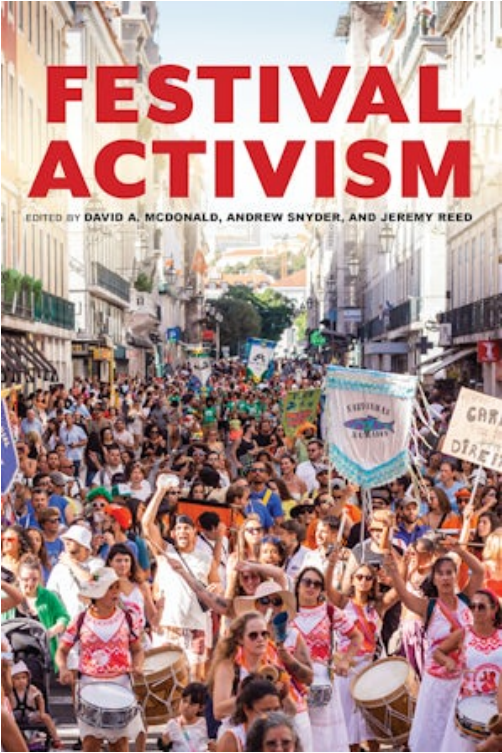
Filippo Bonini Baraldi, researcher at INET-md, authors the chapter “Rethinking Relational Geometries in Musical Events in Europe: Artistic Devices and Activist Implications”, included in the new book Festival Activism (Indiana University Press, 2025), co-edited by Andrew Snyder, also INET-md researcher, David A. McDonald and Jeremy Reed.
Abstract:
In the first part of this text I argue that Parisian musical life at the beginning of the XXI century is, contrary to what one may imagine, an example of an impoverished musical culture. I suggest that, despite the enormous variety of musical genres that one can find in the city, most musical acts feature highly standardized “relational geometries”, that is, ways in which human bodies relate to other human bodies or other type of agents in a determined context. Following Jacques Rancière’s critical thoughts on political art, I propose that this impoverishment is a fundamental issue, since it reduces society into a “regime of consensus”, one in which we all perceive the same things and we give them the same meaning. I further suggest that ethnomusicologists, now that the discipline has become more applied and engaged, should counteract this trend toward impoverishment. Specifically, they should take example from the multitude of relational geometries that they observed in the musical cultures of the world, and create new spaces, situations, opportunities where music can foster multiple dispositions of bodies and heterogeneous sensible experiences.
In the second part of the chapter, I describe two experiences in which, together with other artists and activits, I sought to concretely address these concerns. In an event called Bal des Pianos that took place in Montreuil, a Parisian suburb, we experimented with an ensemble of counter-devices that allowed us to contrast the dominance of the presentational, “frontal” geometry of musical acts and, more widely, the norms of Parisian musical life. These same counter-devices, as far as they allowed one to express and experience values of difference, margins, heterogeneity, multiplicity, in reaction to those of the norm, center, consensus, and uniformity, proved to resonate with activists concerns in other areas than the Arts. In the EU-funded project “European Festival of Diversities and Antidiscrimination”, we joined LGBTQI+, migrant women, and Roma activists, and organized the “Bal of Diversities” in several European cities. In the final section, by introducing the notions of emergence, polymusics, dissensus, and multiple commons, I will discuss how these musical and ethnomusicological experimentations, besides providing direct, musical support in defense of specific activist concerns, may a have broader political, even utopian, implications.
